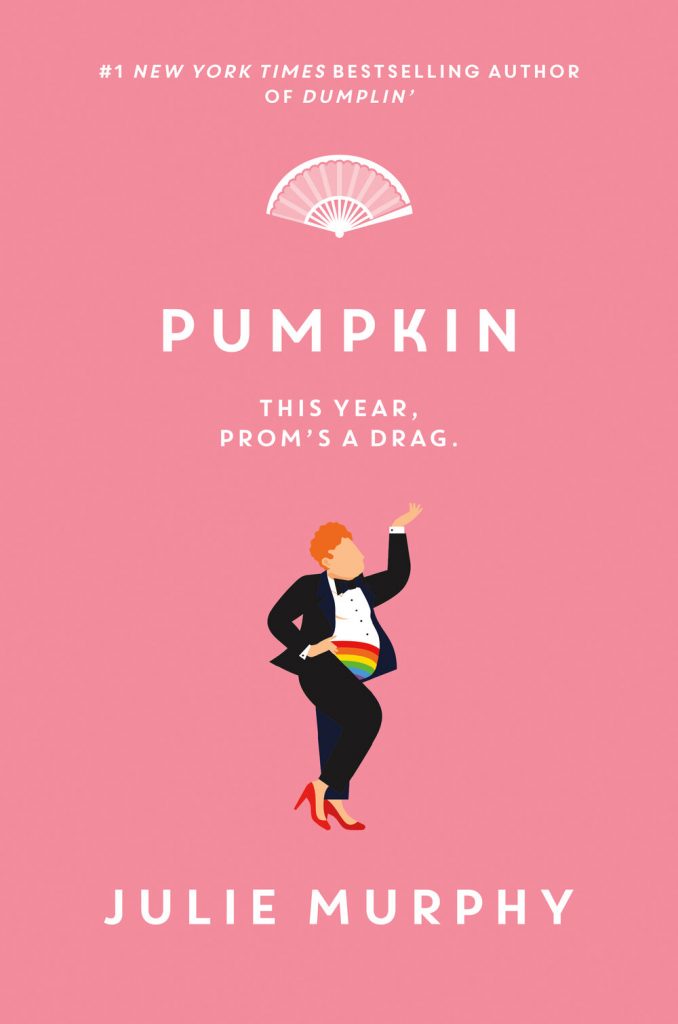“When the world isn’t selling what you’re looking to buy, you just have to take it upon yourself to cut your own pattern” (Murphy 305).
So much YA is coming-of-age stories, and Pumpkin by Julie Murphy is no exception to that rule. Since adolescence is a time of identity formation it’s really no big surprise that YA novels focus on protagonists accepting or rejecting identities–either identities they’ve formed or those thrust upon them by the world–and finding their place in their world.

And Waylon in Pumpkin is no exception to this theme in YA literature–except he sort of is. Like a lot of YA protagonists, Waylon doesn’t have anything figured out. He’s about to graduate from high school, but he has no idea about what he wants to do in college. He didn’t get into UT, so he plans to move to Austin and go to community college until he figures it out. He’s not stressing about trying to figure it out. He’s just sort of floating along. But on another level, it seems like he wants things figured out. Or he wants Clem, his twin sister, to figure it out for him. He’ll follow along. Which means it’s really tough on him when he learns Clem has figured out what she wants, and he’s not included in those plans. He wants to blend in with everyone else–wearing cargo shorts and polo shirts his mom picks out for him and hating every minute of it–but he also wants to stand out in the crowd.
One of the most refreshing things about Waylon is that he has nothing figured out, and he’s not really trying to figure it out. He’s just surviving until he can get out Clover City, Texas and start Waylon 3.0. (Waylon 1.0 was his childhood, and Waylon 2.0 was after he came out.) He has a certain amount of teen angst and drama about him, but it’s all of his own making. Clem, mocks his drama, and his parents give him the distracted mmmhmmm, and then push him back into reality. No one really gives in to his drama, so it keeps the novel light and fun. When the real angst-evoking scene happens towards the end of the novel, Waylon miraculously handles it and then tells Clem it’s been handled. She doesn’t need to do anything. Waylon is as well-adjusted as a gay teen living in a small town in Texas can be. His parents, grammy, and sister love him exactly as he is.
The main problem in the novel is that Waylon really has to learn to stop being so self-centered and self-important. He has to learn to communicate with people. He has learn to see things from other people’s perspective. In fact the reader is usually a few steps ahead of Waylon because we’re seeing the world, and he’s simply navel gazing. When Waylon learns to look up and look around, he becomes an all-around good guy. While on some level the book may be about Waylon learning drag or running for prom queen, it’s really about personal growth and what happens when Waylon learns to see situations from multiple perspectives. And the beautiful thing is that when Waylon learns to be open to a lot of possibilities, he also finds not only his voice, he learns to love himself, and he also finds a whole group of friends beyond just his twin sister.
While I initially picked up the book because I love Julie Murphy and her body positivity and LGBTQ+ themes, I find this novel to be more about learning to accept others after you’ve learned to accept yourself.






